
Denmark: The children taken from home for a social experiment
"It was a lovely summery day, when two grand Danish gentlemen showed up at our house," says Helene Thiesen. It was 1951 and she lived with her family in Nuuk, the capital of Greenland.
"They had an interpreter with them and my older sister and I thought: What are they doing here? We were very curious. We were told to go outside while mum spoke to them.
"They asked my mum if she would be willing to send me to Denmark. I would learn to speak Danish and get a good education - they said it was a great chance for me.
"My mum said, 'No,' to them twice. But they kept pushing her and said we think you should send Helene to Denmark, it's only for six months. And she'll get the chance of a bright future - so we think you should let her go."
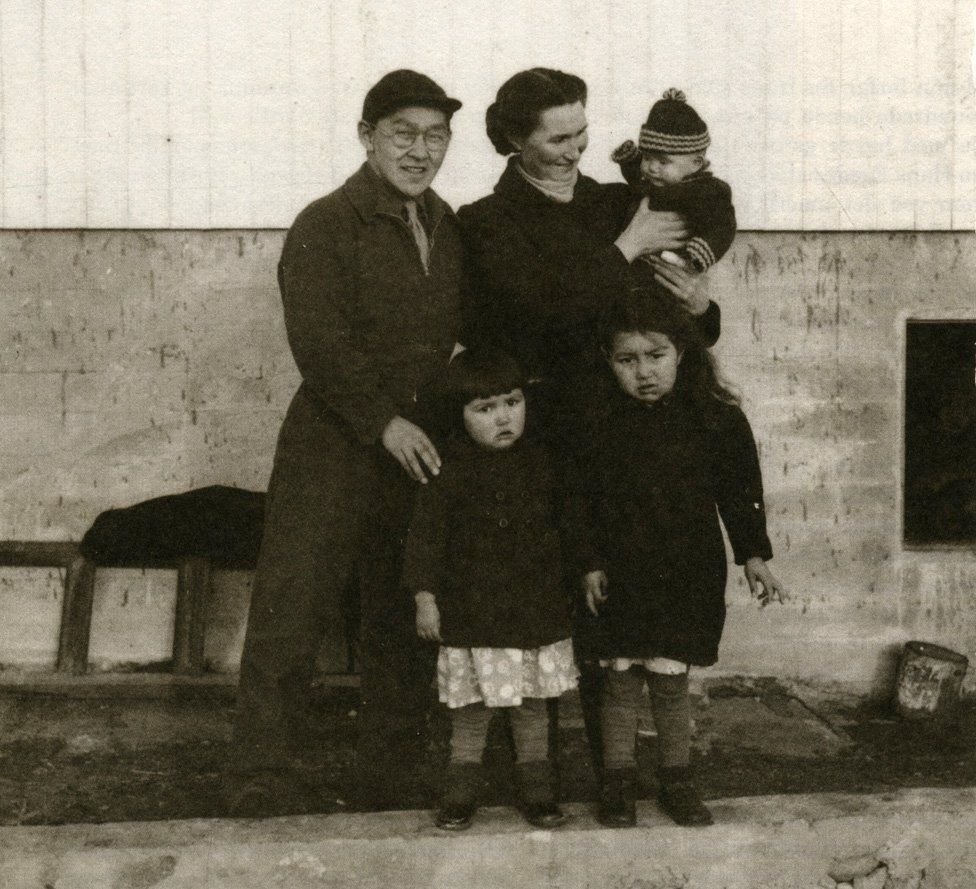
Denmark had resolved to improve living conditions in its Arctic colony. Many people still made a living by hunting seal, only a small percentage spoke Danish, and tuberculosis was widespread.
The best way to modernise the island was to create a new type of Greenlander, the Danish authorities decided, so they sent out telegrams to priests and headteachers asking them to identify intelligent children between the ages of six and 10. The plan - formed with the help of the charity Save the Children Denmark - was to send them to foster families in Denmark so they could be re-educated as "little Danes".
Many parents were reluctant to give up their children but eventually 21 families gave in.
Helene Thiesen's father had died from tuberculosis three months earlier and her mother was left on her own with three young children.
"My mum crouched down and explained to me, 'You're going to Denmark.' I said, 'What's Denmark?'
"'It's a country very far away,' mum said. 'But it's beautiful, it's just like paradise. You don't have to be sad,' she said."
In May 1951, the ship MS Disko set sail from Nuuk with 22 children on board.
"We walked down to the harbour from our house, with my little suitcase," says Thiesen.
"From the boat, I looked at my mum and I couldn't wave at her. I was too upset. I just kept my arms down. I thought, 'Why are you letting me leave?' We couldn't understand why they were shipping us away. What lay ahead? Everything was so uncertain.
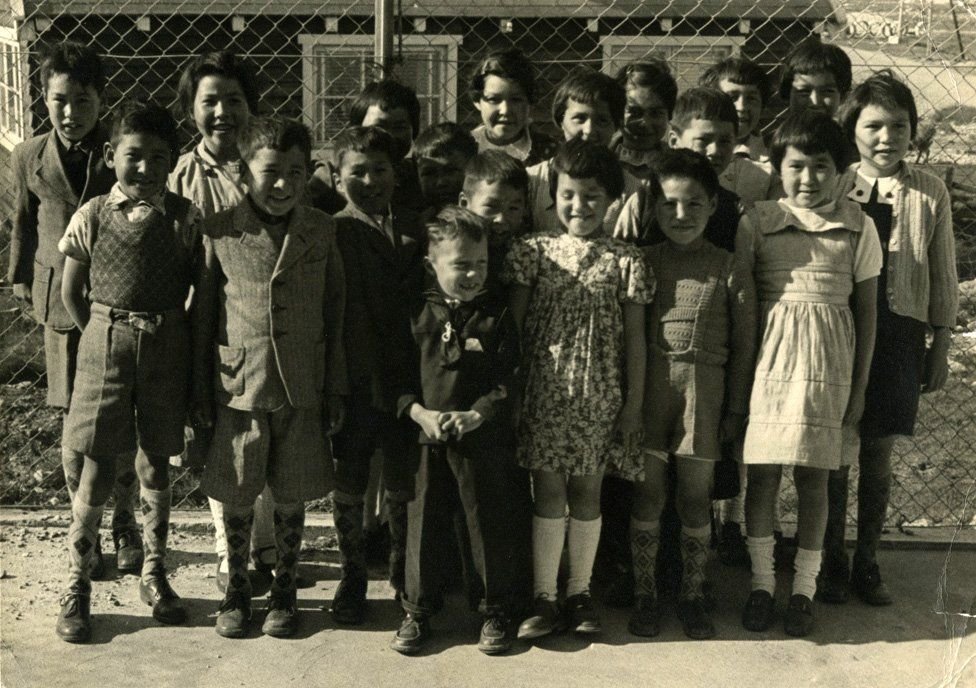
"I remember arriving in Copenhagen. It was dusk and it was a very big harbour. And I thought my mum was wrong because I could see there were mountains in Denmark. But when we got closer I realised it was actually trees that looked like mountains. We didn't really know what they were. But they were tall and green and alive."
After they arrived in Denmark, the children were sent to live with foster families. But first they had to spend the summer at what was described as a "holiday camp", known as Fedgaarden.
"It later emerged that we were actually in quarantine," says Thiesen.
"The farm was so remote, we never saw any other houses. And we were quarantined because it was the first time a group of young children from Greenland had arrived in Denmark. There were fears that we could have something contagious.
"I kept thinking, 'What are we doing here and when are we going home?' I missed my mother and I was grieving for my dead father. I couldn't understand why I was being sent so far away."
The arrival of the Inuit children was such a prestigious project that the Queen of Denmark paid a visit to the camp.
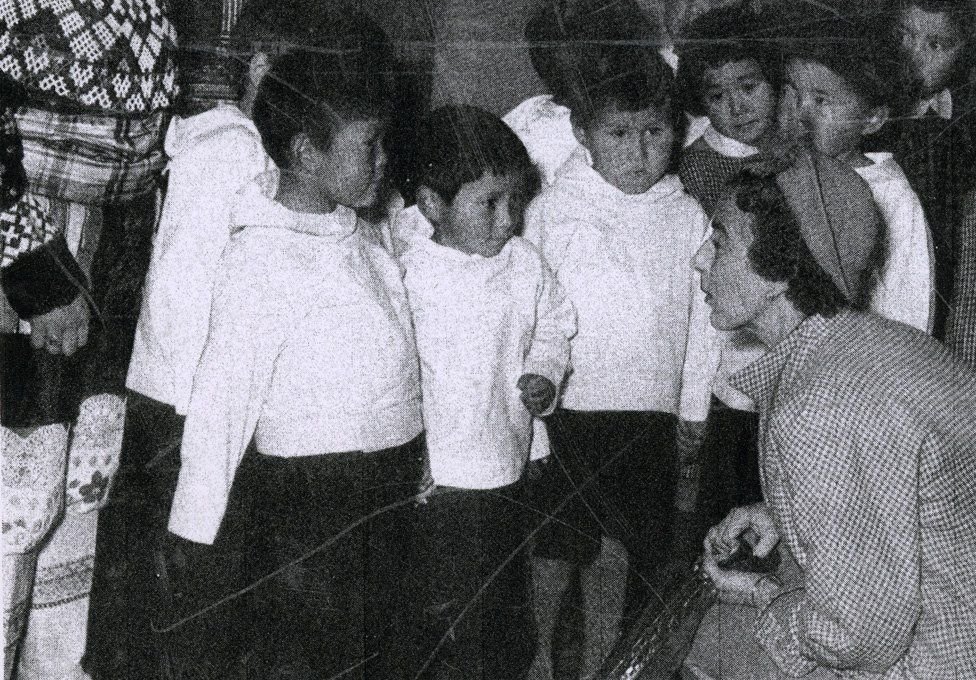
Next, the children were sent to foster families around the country. In December 1951 a Danish weekly magazine ran a double-page spread on the experiment, proclaiming its success.
"The way of life here in Denmark is so different from what these children of nature are accustomed to but their ability to adapt is remarkable. Disagreements - caused by their reaction to civilisation - happen very rarely," it read.
"The children from Greenland already speak Danish quite well but when joy or anger makes them agitated, a flood of Greenlandic words suddenly gushes out and the sounds of gobbledegook are heard throughout the house.
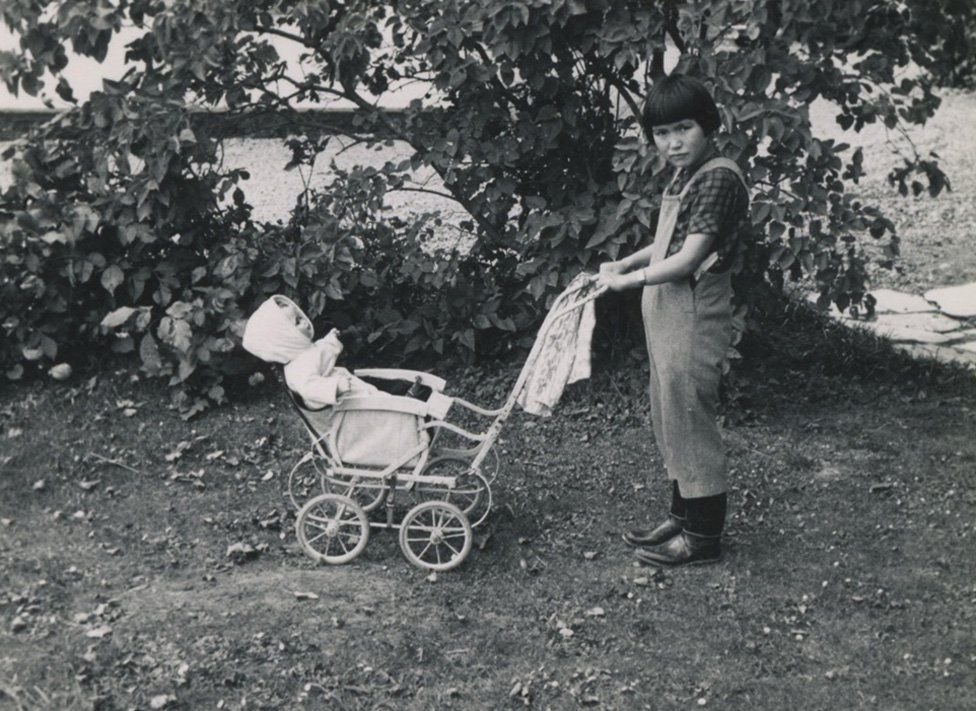
"Helene has never said a word to her foster parents… and responds only with a nod or a head-shake when spoken to. But she's happy to chat away to her foster sister Marianne, who is teaching her how to knit."
Helene Thiesen had developed eczema at Fedgaarden and it was decided that she should live with a doctor. To treat her eczema, he covered her elbows and heels with a black ointment and forbade her from entering the living room so as not to ruin the furniture.
"I didn't feel welcome in that family. I just felt like a stranger. The mother had mental health problems and lay in bed all the time.
"As far as adults were concerned, I didn't trust them. They had sent me to Denmark. Whenever they said anything to me, I just nodded or shook my head. I didn't want to answer them."
A few months later, when her eczema was under control, Thiesen was moved to a different family.
"The second foster family was like a fairy tale compared to the first. They were very warm-hearted people," she says.
Then, the following year, 16 of the 22 Inuit children, including Thiesen, were sent back to Greenland. Save the Children had arranged for the remaining six to be adopted by their Danish foster families.
"When the ship docked in Nuuk, I grabbed my little suitcase and rushed down the bridge into the arms of my mum," says Thiesen.
"And I talked and talked about all that I had seen. But she didn't answer. I looked up at her in confusion. After a while she said something but I couldn't understand what she was saying. Not a word. I thought, 'This is awful. I can't speak with my mother any more.' We spoke two different languages."
And that's when she got another surprise. While Thiesen had been away, another charity, the Danish Red Cross, had built a children's home in Nuuk. It said that after their stay in affluent Danish homes, the youngsters shouldn't live with their own families in "worse conditions".
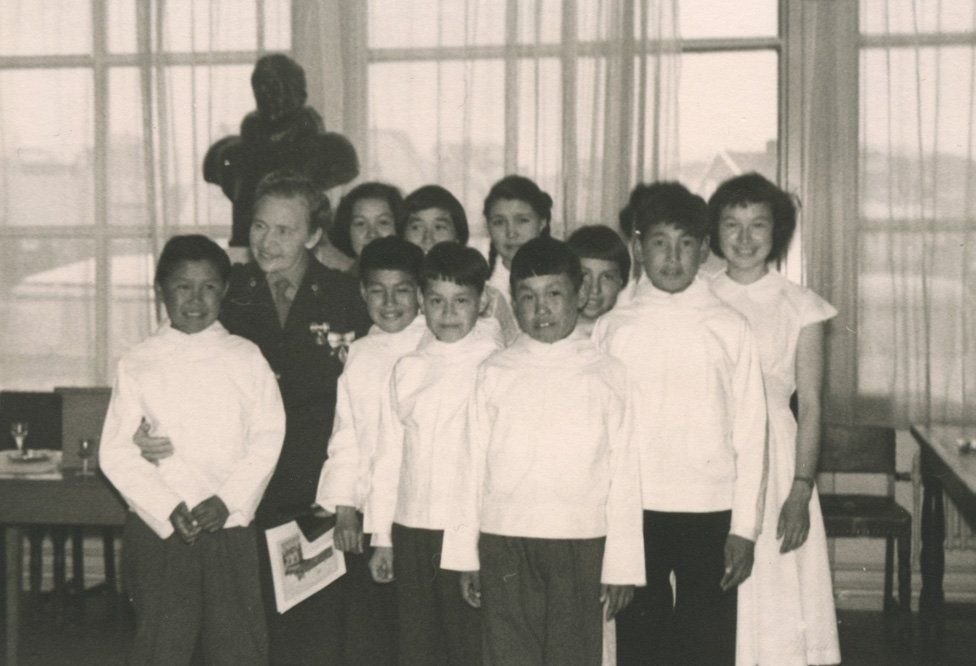
"Our new 'mum' - the director of the children's home - tapped my shoulder and said, 'Come on, get on the bus, you're going to the orphanage.' I thought I was going home to my mum. Why was I being sent to a children's home? No-one answered. I just got on the bus and could hardly see the town through my tears."
At the home, the children were discouraged from speaking the Inuit language. "We wanted to learn Greenlandic again because most of the staff working at the children's home were Greenlanders. And they couldn't speak much Danish.
"But then the Danish manager showed up and went, 'What are you doing? You can't teach them Greenlandic. These children need to be educated and to move up in society. So you'll only be speaking Danish to them in future.'"
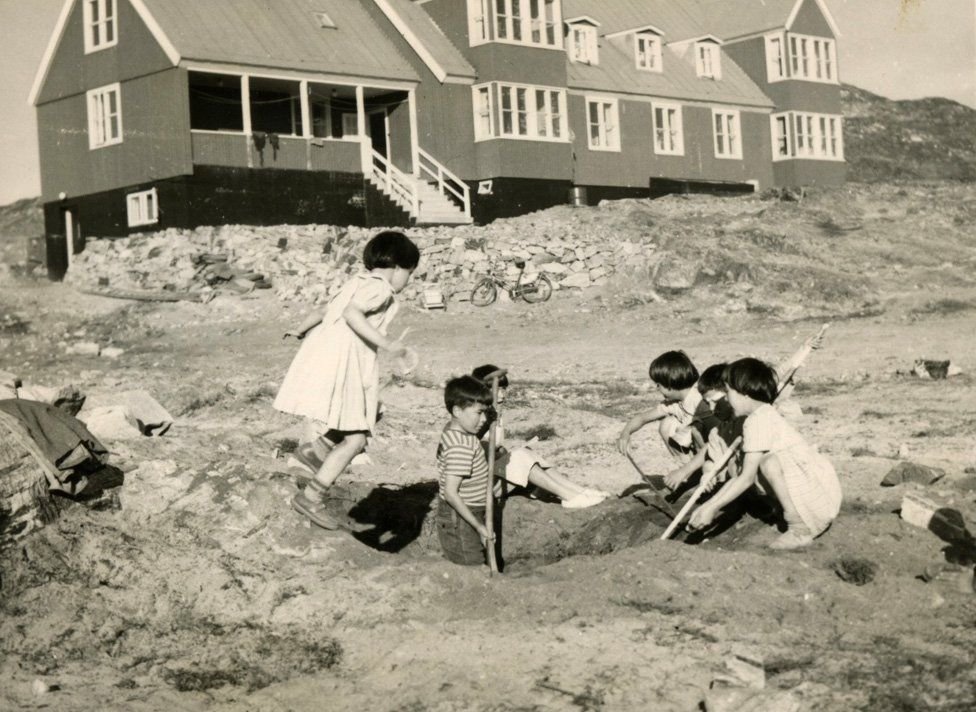
Thiesen's relationship with her mother was never rebuilt. "I felt very bitter about her decision to send me away. Really angry that she had let me go, and not just that - that she let me stay in the children's home, even though we lived in the same town.
"It was in the days when Greenland was a Danish colony. And the colonial masters - they were 'masters' in the worst sense of the word - they controlled everything and you didn't contradict a Dane. You just didn't even question what they said."
Thiesen says the experience had long-term consequences.
"Throughout my life, I could never understand why I was often sad and prone to tears. When I first met my husband Ove in 1967, he almost gave up on me because I cried so much," she says.
It wasn't until 1996, when she was 52 years old, that she discovered why she had been taken away from her mother.
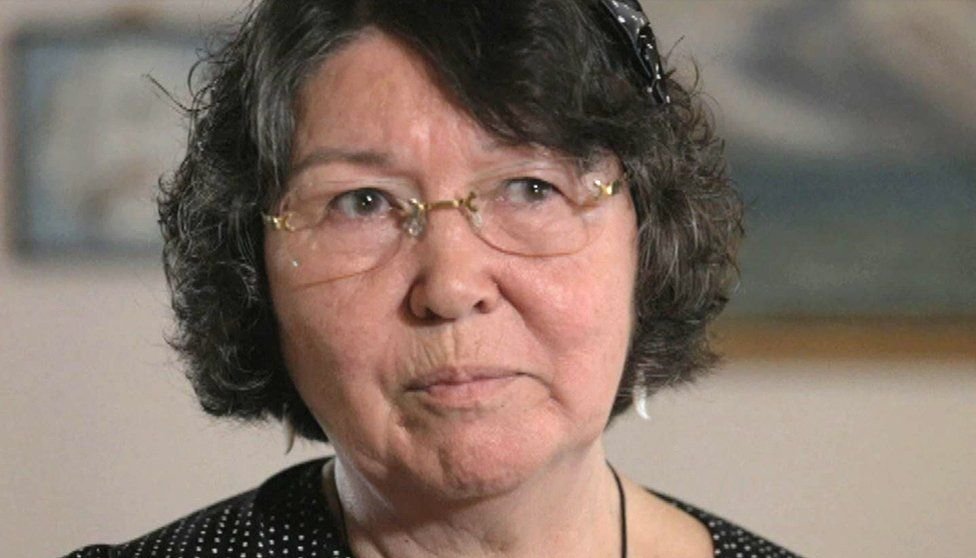
The news did not come from the Danish government but from a Danish writer, who found a collection of documents in the Danish National Archives.
"She called me up and said, 'Are you sitting down? You've been part of an experiment.'
"I sat down on the floor and just wept."
On rare occasions, Helene and the other children meet, though she says only seven of them are left.
"We have all felt that this was wrong. We have felt a sense of loss and a lack of self-belief and those emotions haven't gone away," she says.
Far from serving as a model for cultural change in Greenland, the children ended up as a small, rootless and marginalised group on the periphery of their own society. Several of them became alcoholics and died young.
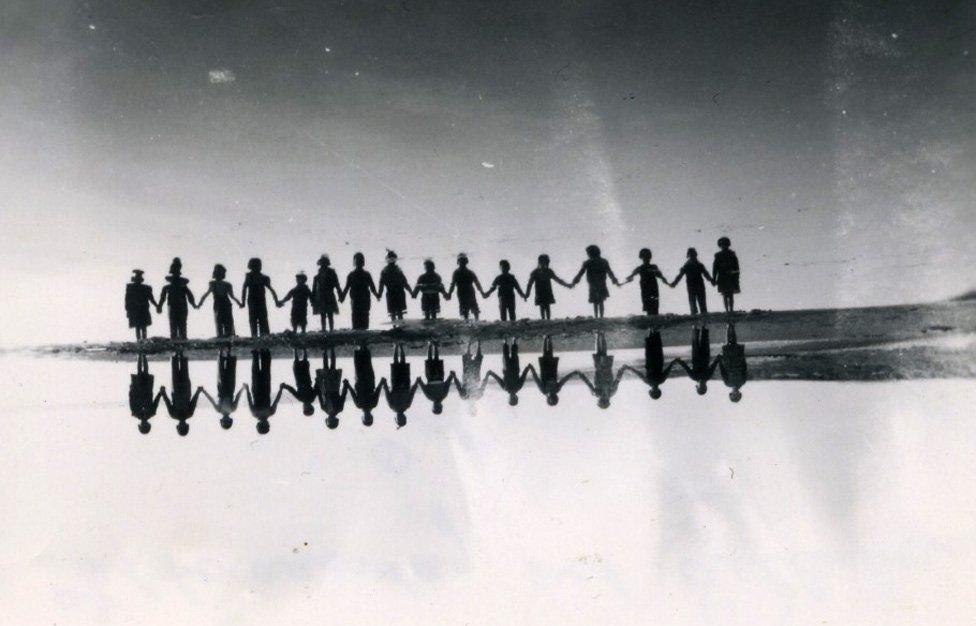
"Some of them became homeless and some just broke down. They lost their identity and they lost their ability to speak their mother tongue and with that, they lost their sense of purpose in life," says Thiesen.
She received a letter from the Danish Red Cross in 1998 in which it said it "regretted" its role in the episode.
Finally, in 2009, Save the Children Denmark apologised too. But an internal investigation showed that some of the documents detailing the organisation's involvement have disappeared - Save the Children admits they could have been deliberately destroyed.
"When we look at what happened, it was a clear violation of children's fundamental rights. There's hardly a rule that hasn't been broken here," says Mimi Jacobsen, secretary general of Save the Children Denmark.
"Their well-being was set aside in favour of a project. They meant well, but it all went terribly wrong. I suppose the thinking at the time was that they wanted to educate and improve Greenlanders to give them a better future.
"They wanted to create role models so that they could return to Greenland and move that society on. That was the political thinking behind the project. And Save the Children were asked by the Danish state to help - which unfortunately we did."
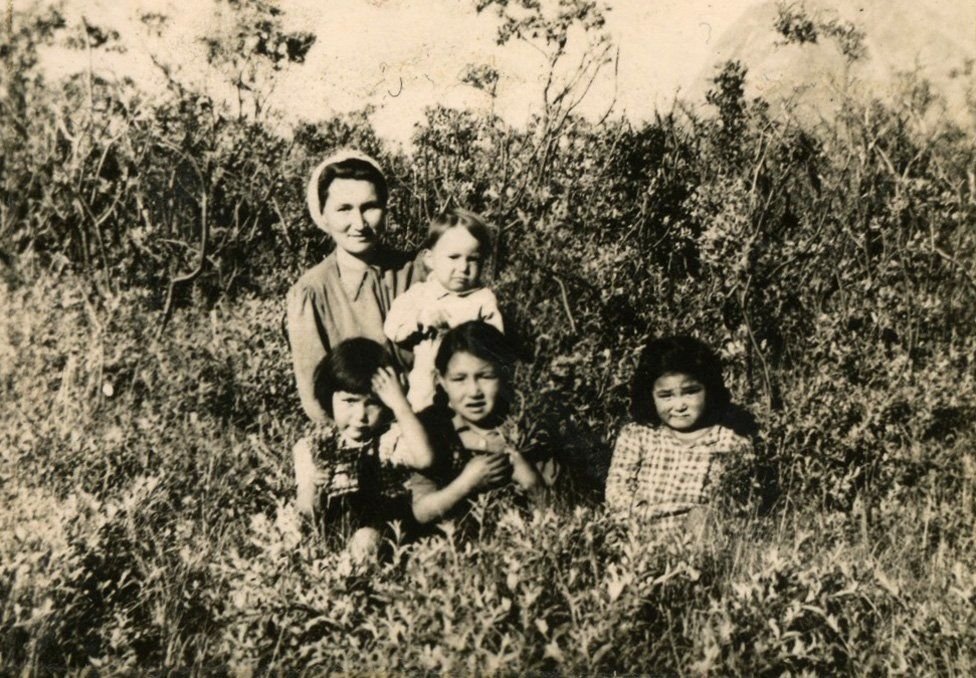
In 2010, the authorities in Greenland also called for an apology from the Danish government
The Danish Social Democratic party, then in opposition, agreed that should happen and called for an independent investigation. Then, after the party entered government in 2011 it went silent on the issue.
Thiesen says the experience did have some positive outcomes.
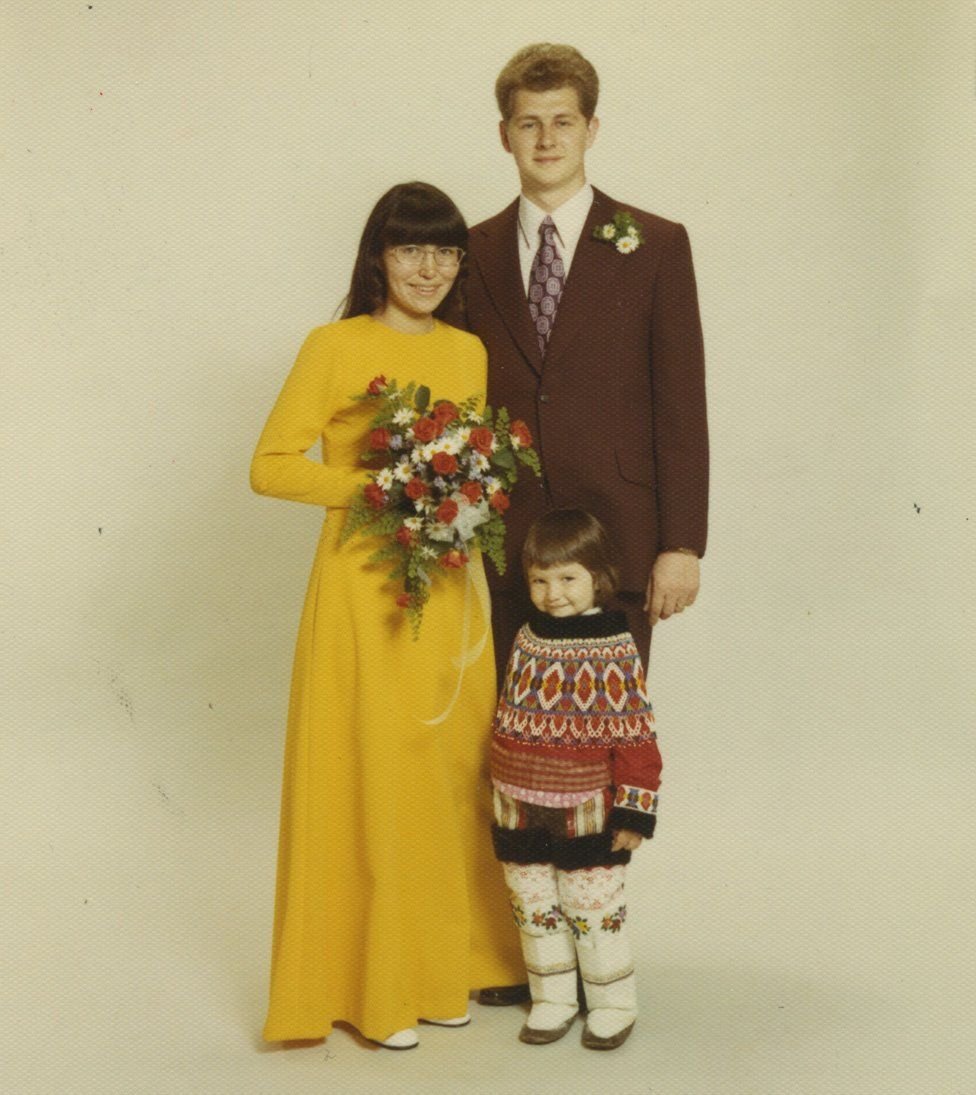
"Despite the fact that I swore blind that I would never marry a Dane because I was furious with the colonial power, I ended up with a Danish husband. Together with him and my children, we have had a happy life in Denmark. And I became fluent in Danish, got a degree and a career."
Thiesen went into childcare and became the head of an after school club. Now 71, she is retired and lives in southern Denmark.
"But as far as the Danish authorities are concerned, I have felt very bitter and very disappointed. I've not been able to understand how they could turn us into an experiment. It's just incomprehensible and I'm still bitter about it. I will be until the day I die."
Greenland at a glance
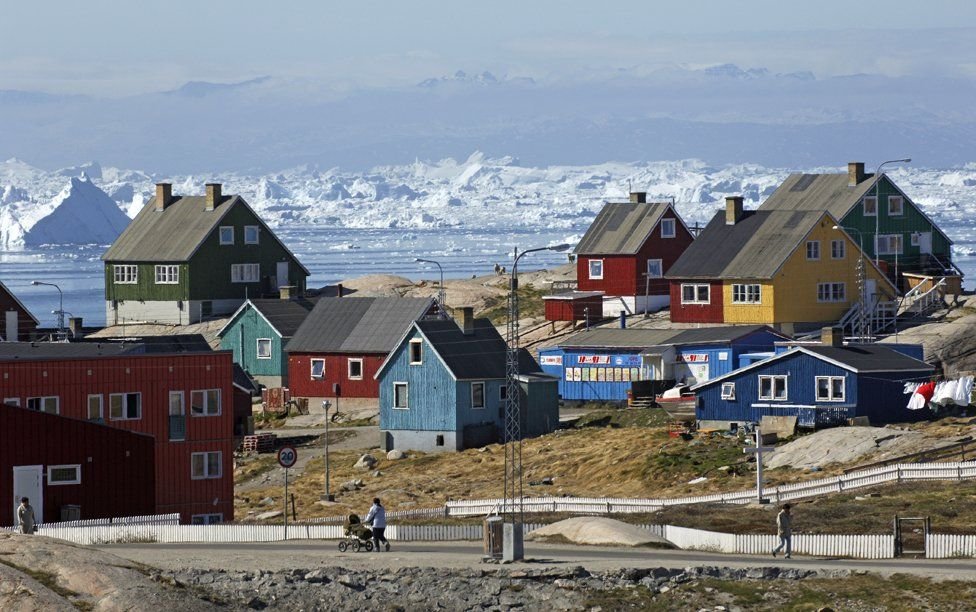
1721 A Danish settlement is established near present-day Nuuk and Greenland becomes a Danish colony
1940 The US assumes protective custody over Greenland during World War Two when Denmark is occupied by Germany
1953 Greenland becomes an integral part of the Kingdom of Denmark and obtains representation in the Danish parliament
1979 Greenland attains home rule following a referendum - its parliament decides upon and administers internal matters, but Denmark retains control over constitutional affairs, foreign relations and defence










